Sure the bottom takes some reaching, but isn't the fall interesting?
Don't wanna be here? Send us removal request.
Text
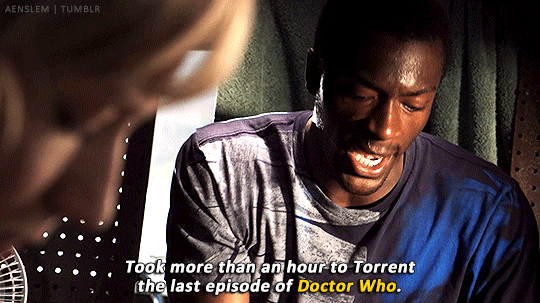
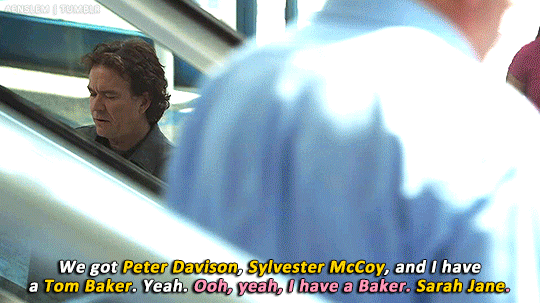
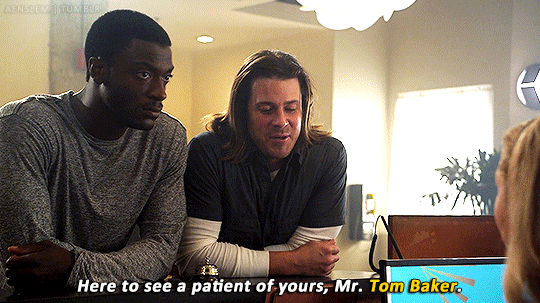
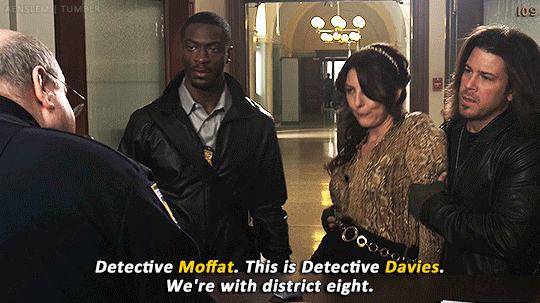
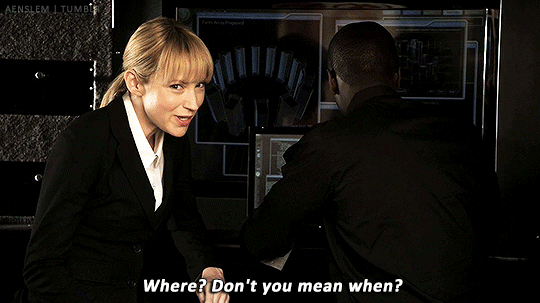
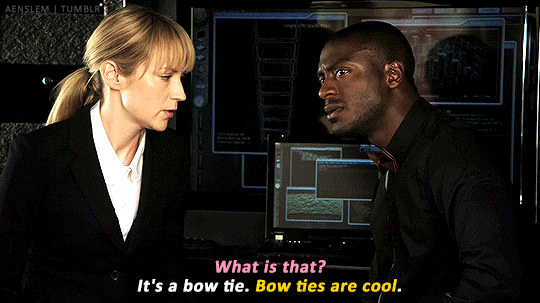
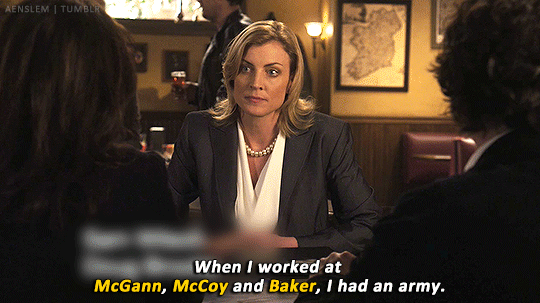
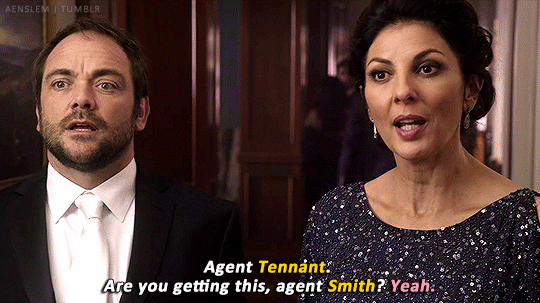
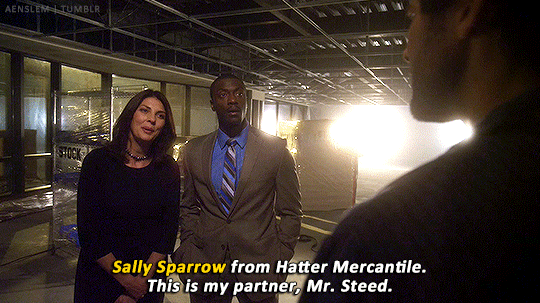
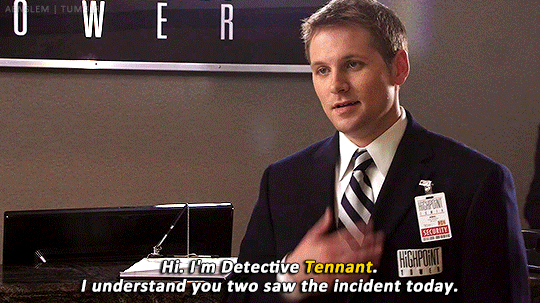
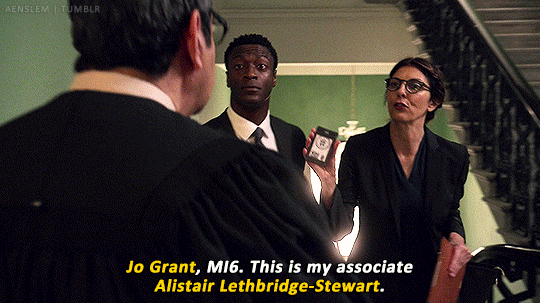
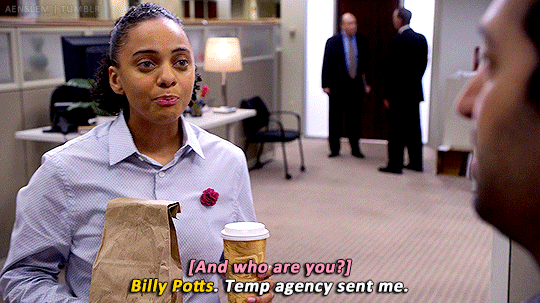
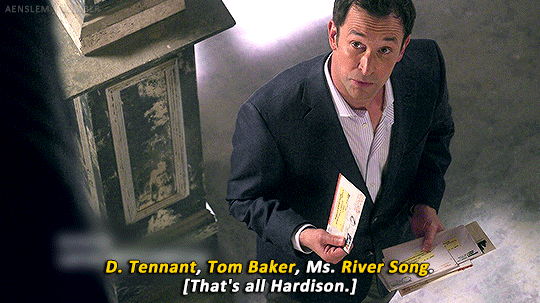
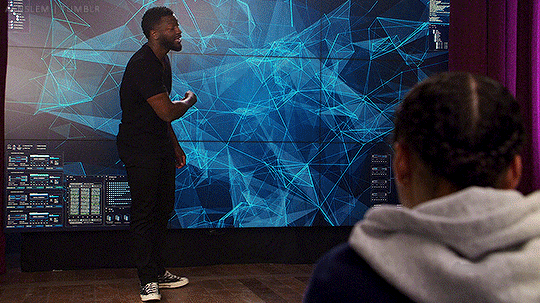
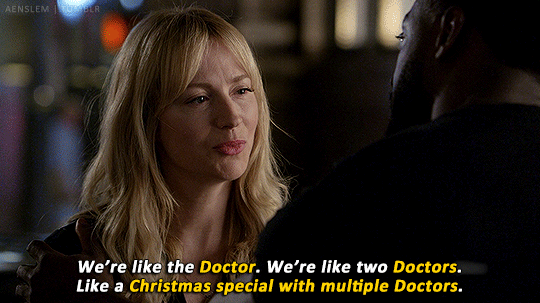
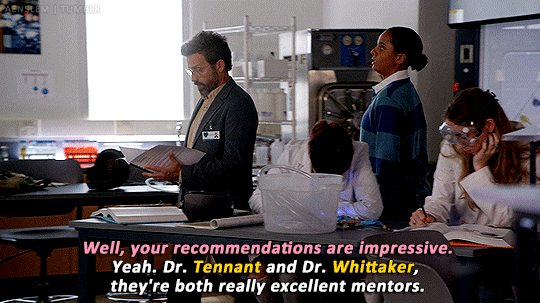
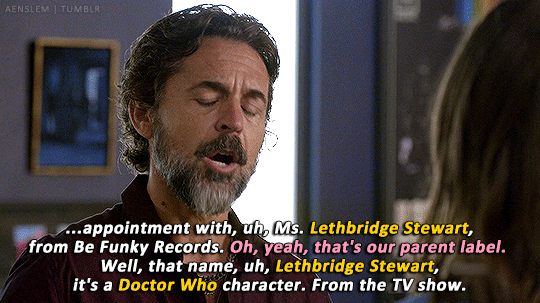
Leverage (2008–2012) & Leverage: Redemption (2021–) x DOCTOR WHO
5K notes
·
View notes
Note
I always find it sooo foreign to me when someone claims my transition has "reduced the number of women in STEM", because bold of them to assume that me not transitioning would equal a Woman In STEM and not a Corpse In Ground.
They only see trans guys as two things:
1. Barefoot breeders in the kitchen
2. Ugly, unfuckable monsters who destroyed their perfect bodies
They can't comprehend that being forced to live as a woman will kill you.
#to say something like that when like 50% of trans women stereotypes is being in STEM#also as a cis woman in stem. i care less about numbers and more about conditions
400 notes
·
View notes
Text
i appreciated this study: "They Can't Read Very Well: A Study of the Reading Comprehension Skills Of English Majors At Two Midwestern Universities"
essentially, a pair of professors set out to test their intuitive sense that students at the college level were struggling with complex text. they recruited 85 students, a mix of english majors and english education majors - so, theoretically, people focusing on literature, and people preparing to teach adolescents how to read literature - and had them read-while-summarizing the first seven paragraphs of dickens's bleak house (or as much as they made it through in the 20 minute session). they provided dictionaries and also said students could use their phones to look up whatever they wanted, including any unfamiliar words or references. they found that the majority of the students - 58%, or 49 out of the 85 students - functionally could not understand dickens at all, and only 5% - a mere 4 out of the 85 students - proved themselves proficient readers (leaving the remaining 38%, or 32 students, as what the study authors deemed "competent" students, most of whom could understand about half the literal meaning - pretty low bar for competence - although a few of whom, they note, did much better than the rest in this group if not quite well enough to be considered proficient).
what i really appreciated about this study was its qualitative descriptions of the challenges and reading behaviors of what the authors call "problematic readers" (that bottom 58%), which resonated strongly with my own experiences of students who struggle with reading. here's their blunt big picture overview of these 49 students:
The majority of these subjects could understand very little of Bleak House and did not have effective reading tactics. All had so much trouble comprehending concrete detail in consecutive clauses and phrases that they could not link the meaning of one sentence to the next. Although it was clear that these subjects did try to use various tactics while they read the passage, they were not able to use those tactics successfully. For example, 43 percent of the problematic readers tried to look up words they did not understand, but only five percent were able to look up the meaning of a word and place it back correctly into a sentence. The subjects frequently looked up a word they did not know, realized that they did not understand the sentence the word had come from, and skipped translating the sentence altogether.
the idea that they had so many trouble with every small piece of a text that they could not connect ideas on a sentence by sentence basis is very familiar to me from teaching and tutoring, as was the habit of thought seen in the example of the student who gloms on to the word "whiskers" in a sea of confusion and guesses incorrectly that a cat is present - struggling readers, in my experience, seem to use familiar nouns as stepping stones in a flood of overwhelm, hopping as best they can from one seemingly familiar image to the next. so was this observation, building off the example of a student who misses the fact that dickens is being figurative when he imagines a megalodon stalking the streets of london:
She first guesses that the dinosaur is just “bones” and then is stuck stating that the bones are “waddling, um, all up the hill” because she can see that Dickens has the dinosaur moving. Because she cannot logically tie the ideas together, she just leaves her interpretation as is and goes on to the next sentence. Like this subject, most of the problematic readers were not concerned if their literal translations of Bleak House were not coherent, so obvious logical errors never seemed to affect them. In fact, none of the readers in this category ever questioned their own interpretations of figures of speech, no matter how irrational the results. Worse, their inability to understand figurative language was constant, even though most of the subjects had spent at least two years in literature classes that discussed figures of speech. Some could correctly identify a figure of speech, and even explain its use in a sentence, but correct responses were inconsistent and haphazard. None of the problematic readers showed any evidence that they could read recursively or fix previous errors in comprehension. They would stick to their reading tactics even if they were unhappy with the results.
i have seen this repeatedly, too - actually i was particularly taken with how similar this is to the behavior of struggling readers at much younger ages - and would summarize the hypothesis i have forged over time as: struggling readers do not expect what they read to make sense. my hypothesis for why this is the case is that their reading deficits were not attended to or remediated adequately early enough, and so, in their formative years - the early to mid elementary grades - they spent a lot of time "reading" things that did not make sense to them - in fact they spent much more time doing this than they ever did reading things that did make sense to them - and so they did not internalize a meaningful subjective sense of what it feels like to actually read things.
like, i've said this before, but the year i taught third grade i had multiple students who told me they loved reading and then when i asked them about a book they were reading revealed that they had absolutely no idea what was going on - on a really basic literal level like "didn't know who said which lines of dialogue" and "couldn't identify which things or characters given pronouns referred to" - and were as best as i could tell sort of constructing their own story along the way using these little bits of things they thought they understood. that's what "reading" was, in their heads. and they were, in the curriculum/model that we used at the private school where i taught, receiving basically no support to clarify that that was not what reading was, nor any instruction that would actually help them with what they needed to do to improve (understand sentences) - and i realized over the course of that year that the master's program that had certified me in teaching elementary school had provided me with very little understanding of how to help these kids (with perhaps the sole exception of the class i took on communications disorders, not because these kids had communications disorders but because that was the only class where we ever talked, even briefly, about things like sentence structures that students may need instruction in and practice with to comprehend independently). when it comes to the literal, basic understanding of a text, the model of reading pedagogy i was taught has about 6 million little "tools" that all boil down to telling kids who functionally can't read to try harder to read. this is not productive, in my experience and opinion, for kids whose maximum effort persistently yields confusion. but things are so dysfunctional all the way up and down the ladder that you can be a senior in college majoring in english without anyone but a pair of professors with a strong work ethic noticing that you can't actually read.
couple other notes:
obviously it's a small study but i'm not sure i see a reason to believe these are particularly outlierish results (ACT scores - an imperfect metric but not a meritless one IMO for reading specifically, where the task mostly really is to read a set of texts written for the educated layperson and answer factual questions about them - were a little bit above the national average)
the study was published last year, but the research was conducted january to april 2015. so there's no pandemic influence, no AI issue - these are millennials who now would span roughly ages 28-32 (i guess it's possible one of the four first-year students was one of the very first members of gen z lol). if you're in your late 20s or early 30s, we are talking about people your age, and whatever the culprit is here, it was happening when you were in school.
i think some people might want to blame this on NCLB but i find this unconvincing for a variety of reasons. first of all, NCLB did not pass because everyone in 2001 agreed that education was super hunky-dory; in fact, the sold a story podcast outlines how an explicit goal of NCLB was to train teachers in systematic phonics instruction, because that was not the norm when NCLB was passed, and an unfortunate outcome was that phonics became politicized in ed world. second, anyone who understands anything about reading should need about ten minutes max to spend some time on standardized test prep and recognize that if your goal is truly to maximize scores... then the vast majority of your instructional time should be spent on improving actual reading skills because you actually can't meaningfully game these tests by "practicing main idea questions" (timothy shanahan addresses this briefly near the top of this post). so i find it very difficult to believe that any school that pivoted to multiple choice drill time in an attempt to boost reading scores was teaching reading effectively pre-NCLB, because no set of competent literacy professionals would think that would work even for the goal of raising test scores. third, NCLB mandated yearly testing in grades 3-8 but only one test year in high school; kansas set its reading and math test year in high school as tenth grade. so theoretically these kids all had two years of sweet sweet freedom from NCLB in which their teachers could have done whatever the fuck they wanted to teach these kids to actually read. the fact that they didn't suggests perhaps there were other problems afoot. fourth, and maybe most saliently for this particular study, the sample text was the first seven paragraphs of a novel - in other words, the exact kind of short incomplete text that NCLB allegedly demanded excessive time spent on. i'm not really sure what universe it makes sense in that students who can't read the first seven paragraphs of a novel would have become much better reader if everything else had been the same but they had been making completely wack associations based on nonsense guesses for all 300 pages instead. (if you read the study it's really clear that for problematic readers, things go off the rails immediately, in a way that a good program targeted at teaching mastery of text of 500 words or less would have done something about.)
all but 3 of the students reported A's and B's in their english classes and, again, 69% of them are juniors and seniors, so like... i mean idk kudos to these professors for being like "hold up can these kids actually read?" but clearly something is wack at the college level too [in 2015] if you can make your way through nearly an entire english major without being able to read the first seven paragraphs of a dickens novel. (once again i really do encourage you to look at the qualitative samples in the study, lest you think i am being uncharitable by summarizing understandable misunderstandings or areas of confusion that may resolve themselves with further exposure to the text as "can't read.") not to mention the fact that most students could not what they had learned in previous or current english classes and when asked to name british and american authors and/or works of the nineteenth century, roughly half the sample at each college could name at most one.
the authors of the study are struck by the fact that students who cannot parse the first 3 sentences of bleak house feel very confident about their ability to read the entire novel, and discover that this seeming disconnect is resolved by the fact that these students seem to conceptualize "reading" as "skimming and then reading sparknotes." i think it's really tempting to Kids These Days this phenomenon (although again these are people who in some cases have now been in the workforce for a decade) and categorize it as laziness or a lack of effort, but i think that there is, as i described above, a real and sincere confusion over what "reading" is in which this makes a certain logical sense because it's not like they have some store of actual reading experiences to compare it to. i also think it's pretty obvious looking at just how wildly severed from actual textual comprehension their readings are that these are not - or at least not entirely - students who could just work harder and master the entirety of bleak house all on their own. like i don't think you get from "charles dickens is describing a bunch of dinosaur bones actually walking the streets of london" to comfortably reading nineteenth century literature by just trying harder. i really just don't (and i say that acknowledging i personally have had students who like... were good readers if i was forcing them to work at it constantly... but i have also had students, including ones getting ready to enter college, who were clearly giving me everything they had and what they had was at the present moment insufficient). i think that speaks to a missing skillset that they don't know are missing, because they don't have any other experience of "reading" to compare it to.
just wanna highlight again that although they don't give the breakdown some of these students are not just english majors but english education majors a.k.a. the high school english teachers of tomorrow. some of them may be teaching high school english right now, in case anyone wishes to consider whether "maybe some high school english teachers can't read the first seven paragraphs of bleak house?" should be kept in mind when we discuss present-day educational ills.
15K notes
·
View notes
Text
whenever I search "high sodium" I get results for "low sodium"
I know what I fucking searched
#even if it gave you results there's often no info#i want to raise my cholesterol because it's pretty low#apparently this just isn't a problem people have?
1K notes
·
View notes
Video
Weavers like look square, sometimes rectangle is the best and easiest shape to make
Ancient fashion girlies: I can make that work
cr: 百变花央
119K notes
·
View notes
Text
"made him question his chili"

"I would never jeopardize the beans" pales in comparison to it's newest successor, "beans r not woke. How could u do this?"
60K notes
·
View notes
Text
I was a netball umpire for a bit, did a training course so I could get paid to do it.
I helped with some under 10s practice at my club (the youngest age group in the local league) and the coach told me at the start to ignore any stepping (a common netball violation especially for learners) unless it was egregious.
Why?
Because if I called a penalty every time a nine year old did that the entire *practice* game would have been me doing that. (They were little it's hard to learn that skill). Which is no way to learn tactics or practice passing or any of the stuff needed in a game other than not stepping.
If you call out every violation even the ones where their spirit is in the right place, you don't get better allies, you get people who quit because the community is hostile to them.
And in sports that just means your club doesn't have future players because they all quit before they could get good, in activism sometimes you lose supporters before they get good *and* set your own world view in concrete because you're not getting feedback from other viewpoints.
I was discussing the incident mentioned later in this piece with my wife yesterday and I saw another post by someone earlier doing something mentioned in here and I'm finally going to say something about it.
There is a serious problem in leftist spaces, especially online, especially on Tumblr, when it comes to language.
The way people are expected to speak just to even enter these spaces is incredibly complex, to the point of being outright hostile to those who haven’t already spent time in them. And it’s not just newcomers; people who have important things to say, people speaking from lived experiences, people who don’t have English as a first language but still deserve to be heard, are constantly talked down to or even pushed out entirely for not using the "right" words.
This gets even worse when you factor in how often new terms are coined in English, and then people are shamed for not immediately knowing or using them.
I saw someone reblog their own post saying something like, "I know for a fact more than half of y’all didn’t understand a fucking word I said here."
And honestly? That stuck with me, because yeah, I’ve felt that before. Not because I don’t value critical thinking! because I absolutely do! I just made a post on that too! but because so many of these posts are written in a way that makes them Functionally Inaccessible to anyone who doesn’t already have the right background knowledge. And at a certain point, if you actually want your words to have an impact, if you actually want to create meaningful change, then you’re going to have to accept some things:
People will not always use perfect language.
2. People will not always know the exact terminology you personally prefer they use when engaging in discourse.
3. Dismissing or attacking people for how they say something, instead of engaging with what they’re saying, is actively harmful.
And more than that, if you genuinely want people to understand and engage with the things you’re talking about, especially people who don’t speak English as a first language, especially people without access to higher education, especially people who don’t even know where to begin when it comes to self-education (because yes, that is a skill that has to be taught) then you are going to have to be the one to adjust sometimes. You are going to have to let people say things imperfectly. You are going to have to take a step back and engage with the message rather than just the words being used to express it.
One of the experiences that made me realize that I, as a non-native English speaker, was not welcome in Tumblr leftist spaces was when I spoke about real-life oppression I had experienced. I left one word out of my post, a word which honestly, was not even important when talking about an incident that had Happened To Me, not theory, not hypotheticals or any what-ifs of oppression, a story, a story about something that happened to me.
And because of that, people sat in a Discord server, picking apart my words, accusing me of awful things, and then came into my askbox throwing jargon and buzzwords I’d never even heard before, then got mad at me for being frustrated that this was happening.
Think about that. People who are directly impacted by oppression are being pushed out of spaces meant to discuss it because the way they speak doesn’t conform to certain expectations. That is not justice. That is not solidarity. That is not progress.
There is a fundamental disconnect here between theory and praxis. Ironically so many of you do not know what praxis is, because most of you engage with a lot of theory, and not a lot of praxis, you use the word praxis a lot, but, ironically, you have no idea what it means.
{to put my money where my mouth is, it means Doing Something, in the simplest possible terms}
In theory, leftist spaces should be accessible. They should be places where people can speak openly about their experiences, learn from each other, and work toward meaningful change. But in practice? There’s a gatekeeping of language so intense that many people, particularly those who are marginalized in ways beyond just their political beliefs, are outright excluded.
And this is something I need people to sit with: The assumption that the "right" language is easy to learn, or that anyone who doesn’t use it is being willfully ignorant, is an inherently privileged stance. Knowing where to find information, how to process it, and how to integrate new terminology into your vocabulary is a skill that is largely tied to education. Having the time to engage with leftist literature and theory, to stay up-to-date on every new term that gets introduced, is also a privilege. And the fact that so many people refuse to acknowledge this, that they expect perfect articulation from everyone, regardless of background, and punish those who don’t measure up, is a huge problem.
Worse still, the same people who act as gatekeepers of this language often fail to communicate their ideas in a way that is accessible at all.
This doesn’t mean that complex ideas should never be discussed. It doesn’t mean that people shouldn’t strive for accuracy in their language. But it does mean that if your goal is to educate, if your goal is to spread awareness, if your goal is to help people understand and join the movement, if your goal is to engage with fellow oppressed people, then you have a responsibility to meet people where they are. You have a responsibility to make your language understandable.
Because if people can’t even process what you’re saying, then what’s the fucking point?
And before anyone says, "Well, people should put in the effort to learn!" Let me make something very clear: They do.
People who are new to leftist spaces, or who are coming in from different linguistic and cultural backgrounds, are often trying their best to engage. They are listening, they are learning, they are processing. But if the response to every mistake, every slightly off phrasing, every unfamiliarity with a new term, is immediate hostility,
or even if it's just 'hey I see you're sharing a personal moment, but can you change your language to make me, personally, more comfortable with you discussing your oppression?' then you’re not teaching.
You’re just making sure only the people who already think and speak exactly like you get to stay in the room.
Your language, your terminology, your theory? none of it means anything if you can’t make it accessible to the people who actually need it. And it means nothing if you use it to Exclude rather than Include.
7K notes
·
View notes
Text
A lot of straight men are attracted to women and sort of low key furious about that. They want sex but they don't really like women.
The longer I exist as a loudly proudly gay man the more I think that cishet men aren't actually attracted to women.
34K notes
·
View notes
Text
The times when the pope is infallible is extremely limited and we can count the statements declared to be such. 2 it's two. They're both about Jesus' mother btw.
my favorite thing about a new pope getting elected is watching conservatives realize again that catholics are insane

ahahaha they dont know
2K notes
·
View notes
Text
Seems to be more common in women. Studies? Research nah we going on just vibes have you considered some yoga about it?
chronic pain diagnoses are all like yeah we don't know what this is or why it happens. we also don't know how to treat it. good luck out there soldier
24K notes
·
View notes
Text
my favorite thing about a new pope getting elected is watching conservatives realize again that catholics are insane

ahahaha they dont know
#this is like going wait the pope is catholic!?!? and you're okay with that?#you're supposed to agree by joining the church or go be a protestant (or atheist or...)#like i don't think the catholics are the strange ones in this specific scenario
2K notes
·
View notes
Text
trying to explain the vibe of what australian politics is like to people from other countries and I think the best example of the kind of relationship we have w our politicians is when Aaron Chen (comedian) was on a panel show and Anthony Albanese (prime minister) called in to present a question and Aaron was like "so you know how we called the previous prime minister (Scott Morrison) Scomo? Can we call you Anal?" and he just . laughed
#like other countries just Cannot Fathom the fact that we don't hold politicians to any higher level than the average person#<- prev#Australia doesn’t not have class#but many countries think they don't put politicians on a pedestal but are shocked we'll just call our pm a cunt to his face#we really do think that the pm is just another person and often not a great one
1K notes
·
View notes
Text
It's because his era was a stable time. He did a bunch of bad things and most of his surpluses were wastes when they could have been infrastructure. But for a lot of normie older Australians 1994-2006 wasn't a bad time for them. And the PM always gets blame/credit for that regardless of how much they actually did to achieve it
i'm noticing a lot of older Australians seem to REALLY hate it when you call John Howard a bad Prime Minister (he was).
Idk, maybe it's just me, i don't exactly have the best frame of reference, considering most of the people i've seen react this way also think Trump is a genius.
#auspol#i do not agree but you have to understand why they think that way#especially because if you're younger than the howard era they're wondering who you are to say a good time wasn’t they were actually there
14 notes
·
View notes
Text
idk if i told the full story on here but i signed up for a research study where they were testing a new opioid, and it was supposed to be up to 5 injections increasing the dose to see what people could tolerate
i got the first dose and almost immediately fainted. they had to call in a whole medical team and it was a huge fucking deal
i was kicked out of the study and got a phone call later where they were supposed to tell me what the drug was, so i could avoid it in the future. they told me it was saline water. a placebo. i fainted from the placebo effect.
anyway, it's been a few months and i just got an email from the same department asking me to be a research participant in a new study: testing the effects of open-label placebo.
open label placebo is when the subjects and the researchers all know it's a placebo. they're testing the power of my mind. my power to imagine anything.
i like to think that they chose me for this specifically based on their past experience with me. "get the guy who fainted like a little bitch boy from saline water." anyway i just submitted all my info and i'm looking forward to getting started.
#hmmm#i personally have had 2 different saline burning situations#and the second one made me think that actually the medical people did it wrong#I had a needle for an iv and after about 2 days it got misaligned or something and the saline felt burny#the first time was an attempted plasma donation
78K notes
·
View notes
Text
I think Whitaker is used to being bled, peed, puked, etc. on. He’s just used to it being an animal and not a person.
353 notes
·
View notes
Text
I won't say it's, like, the series' best feature, but on a personally relatable level my favourite thing about The Murderbot Diaries is the repeated implication that most of SecUnit's success as a hacker stems from the fact that it keeps bumping into mission-critical systems where nobody bothered to change the factory default wi-fi password.
#that and literally just asking will you let me on and not tell anyone?#and none of the programming considered the possibility of a bot or partly organic unit would ask for anything it shouldn't
4K notes
·
View notes
